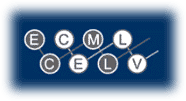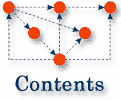
Methods and Instruments Used for
Gaining Data and Evidence
Mária Matheidesz
![]()
1. Checking documents
Rationale: Due to the time constraints of an inspection, most
activities carried out outside the classroom can be assessed through second-hand
information, i.e. written documents.
Documents normally checked during an inspection:
- curricula, syllabi, course descriptions
- weekly plans, schemes of work, class diaries
- lesson plans
- lists of core and supplementary materials
- teaching materials, files
- entry and exit tests
- test results
- observation system descriptions
- internal regulations of administrative duties
- procedure and process descriptions
- job descriptions
- contracts
- attendance sheets, register, other record keeping
- students' notes
- feedback sheets (end-of-term, mid-term)
2. Carrying out individual interviews
with staff and students
Rationale: it is important to receive information from different aspects, therefore it is important to gain first-hand information both from staff and students.
Basic principles:
- specify the aim and function of the interview to the interviewee
- ask only specific and relevant questions
- do not show any preconception - enter the interview with an open mind
- do not provoke the interviewee
- let interviewee speak - do not interrupt with questions all the time
- keep to the point: do not let the interview develop into a "complaints session"
- set time and length of the interview in advance and keep to it (5-10
mins)
3. Focus group meetings
Rationale: representative groups may transmit different ideas and agreed views to the inspectors in individual interviews.
Basic principles:
- ask the institute to aim for a balanced representation from different kinds of student bodies within the student community
- specify the aim and function of the meeting to the group
- ask only specific and relevant questions
- do not show any preconception - enter the meeting with an open mind
- the meeting should be seen as an opportunity to find out about positive things not an invitation to criticism
- let group members speak - do not interrupt with questions all the time
- set time and length of the meeting in advance and keep to it (10-20 mins)
4. Observation of activities
Rationale: Teaching can only be properly assessed if observed.
There are also some other areas where an inspector may want to verify
data or information gained from documentation by observing activities.
The main function of this is usually to see whether described systems,
processes and procedures really work in practice.
Basic principles:
- introduce yourself, say why you are there, what you are going to observe or watch;
- do not disturb or embarrass staff by watching too intensely;
- if you want to ask questions do that at the end;
- do not refer to other sources;
- if you would like to look at documentation, allow time for staff to prepare it.
